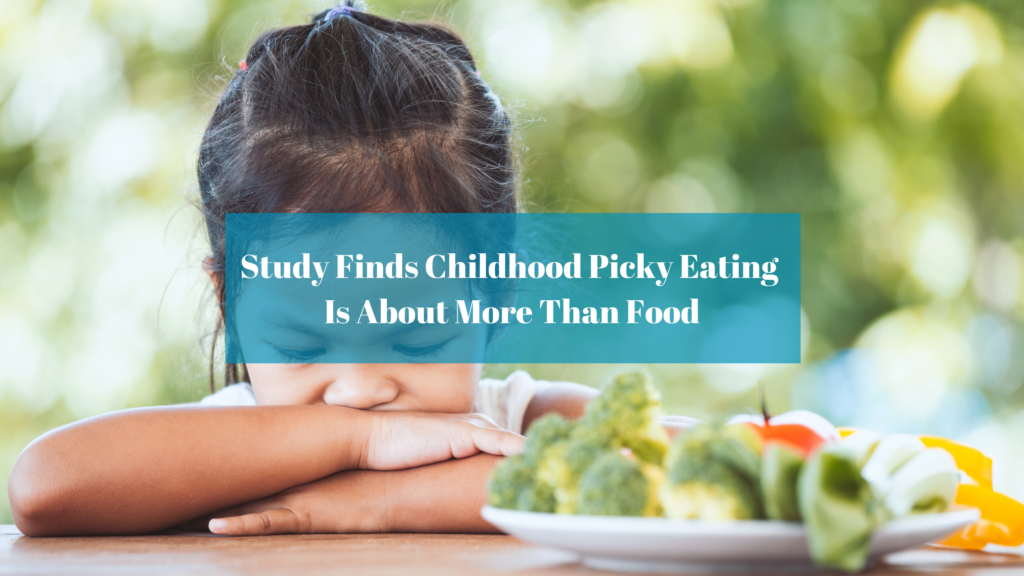
Good news, parents! A study recently published by the Journal of American Academy of Pediatrics says children who are persistent picky eaters aren’t usually underweight, nor do they have higher BMIs than their peers. And, picky eating is likely a personality trait of your child, not something you caused.
Now that we’ve covered the positive news, let’s look at some unexpected findings. The study divided children into three camps of picky eaters: low, moderate, and high. Children who were moderately or highly selective eaters were more likely to have trouble controlling their emotions. Picky eating may not stand alone but may signal a behavioral health problem you need to discuss with your child’s doctor.
While you may not have caused your child’s pickiness, you can make some changes to help your child expand their palate.
Let go of the demands. Children whose parents restrict certain foods or demand they eat certain foods are more likely to be picky. Around the age of four, where this study began following participants, children are moving into independence. If high anxiety is common among picky eaters, as the study suggests, those children are more likely to avoid new foods and a parent’s insistence won’t help.
Make mealtime fun. Put down the screens. Tell a joke. Talk about your day. Ask your child questions. Make mealtime more about the social interaction of your family than about the food. You’ll relieve the pressure on yourself and your kids.
Set a good example. When your children see you eating new foods or healthy foods, they are more likely to want to try those foods themselves. Start your children on the same diet the rest of your family eats early, before they are two if possible.
Involve your children in food selection and preparation. You don’t always have time to let your kids help in the kitchen, we get that. Make some time once or twice a week to let your children help select or cook the food you’ll eat. When they have a hand in the preparation, they are more likely to want to try what you’ve cooked.
If you’re concerned about your child’s nutrition or if their picky eating habits might be signs of behavioral health problems like anxiety, ADHD, or depression, we can help. Not only do we have health professionals like nurses and nurse practitioners on our staff, we also employ a registered dietitian and licensed counselors.
You can read more about the study and its findings through these articles:
‘Picky Eating’ Can Start Early: What Parents Should and Shouldn’t Do About It
Study gives insight — and advice — on picky eating in children
Extreme Picky Eating and Anxiety: A New Study Finds a Surprising Link





Speak Your Mind